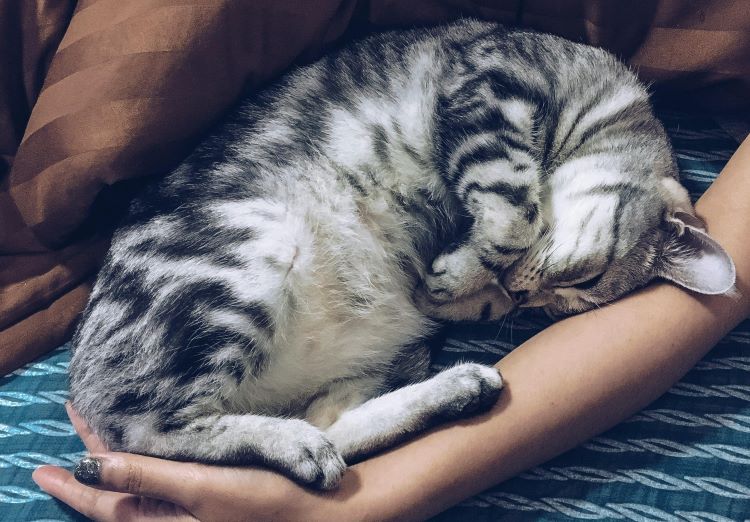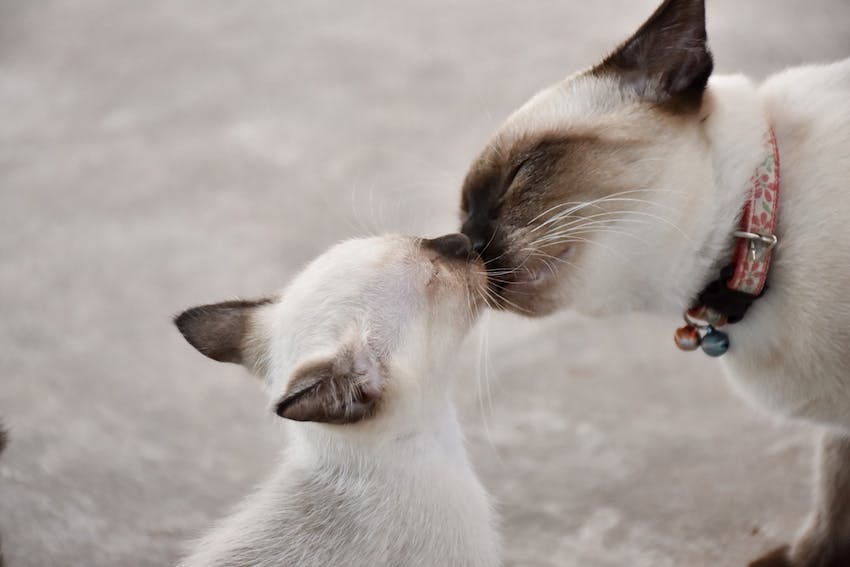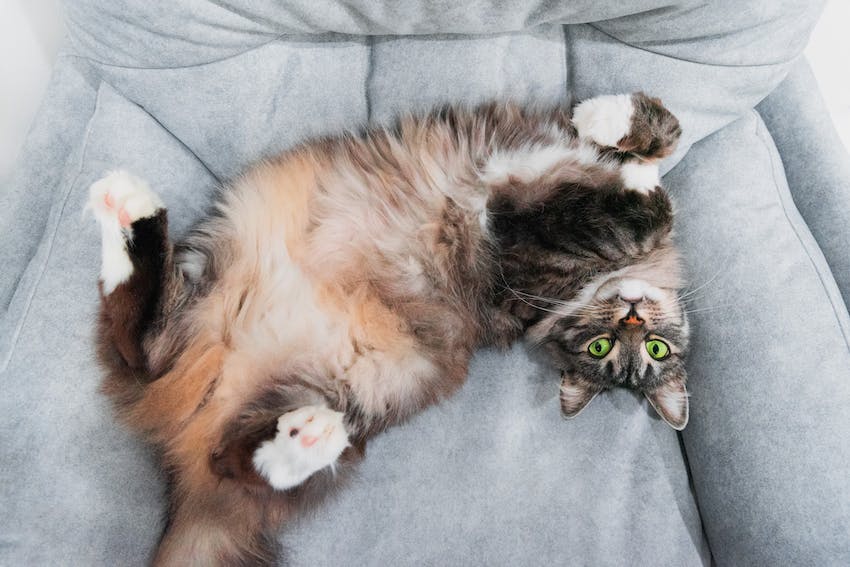Ready to help treat your pet to a healthy life?
Why Do Cats Purr?
By : Brianna Gunter & Trupanion Staff | Updated Jun 12, 2025

Cats have an incredible ability to communicate their feelings and emotions, and one of the most intriguing ways they do this is through purring. Whether you're a seasoned cat owner or just a casual observer, you've probably noticed this soothing sound emanating from your feline friend. It's like a comforting motor that turns on all by itself, though the volume and intensity certainly varies from cat to cat. But have you ever wondered why cats purr in the first place?
Who are we kidding; if you're reading this, you want to know! And luckily for you, we're going to dive into the fascinating world of feline communication to uncover the secrets behind those melodious feline rumbles. But first, let's take a look what this weird sound actually is and the anatomical explanation of how cats purr.
What is purring?
As you may have guessed, in order to understand why cats purr, it’s first important to know what exactly purring is. Plus since it's not like other cat sounds (namely meowing), it's a good idea to explore how our feline friends create this vibrating sound in the first place.
The truth is that cat purring has long been a bit of a mystery to scientists, and explanations over the years have largely relied on assumptions. One prevalent theory stemming from the 1970s is that cats purr by rapidly contracting and relaxing the muscles located in their larynx (voice box), and these contractions occur about 30 times per second.
Then there's a more recent finding that challenges the '70s theory entirely. A study published in 2023 found that cat purring utilizes vocal folds in a special pattern similar to a human speaking in a “vocal fry” manner. Researchers found that purring contractions can occur at frequencies independent of the larynx’s muscular contractions, so your cat may have some other tricks up their paw-sleeve to produce them.
In a nutshell, the exact neurological and physiological mechanisms that drive this process are still being explored by animal scientists. It's still a mystery!

3 possible reasons why cats purr
Purring is a complex and multifaceted phenomenon, and it's not as simple of an expression as many cat owners may believe. There are multiple reasons why your cat may be purring:
1. Communication
Depending on your relationship with your cat, they may purr when around you in an effort to communicate. Many cats seem to use purring as an expression of joy, especially when they are around their preferred humans or being petted. Or, it could be a simple indicator of "I'm here, I’m fine, and everything is okay." That said, some cats will purr at others when they are nervous, so it’s important to pay attention all of your cat’s body cues and their surrounding situation to figure out what it is they’re trying to tell you.
Some cats have been likewise shown to purr when they want to play, be petted, or just snuggle up with you on the couch. Some will even purr when they are hungry and want you to feed them. Cats may also purr to each other or sometimes other animals (like dogs in the same household) to communicate.
2. Comfort and relaxation
The most commonly associated expression with purring is that of contentment. Many cats will purr when curled up with their favorite human or when all cozy in a blanket. A lot of cats will simultaneously purr while kneading their paws, as an almost double form of relaxation.
Nevertheless, cats will sometimes purr because they are pursuing comfort rather than because they are already experiencing it. For example, a stressed-out cat at a veterinary appointment may purr in an effort to soothe their nerves. A cat in physical pain or discomfort may likewise purr to calm themselves and feel better. There is actually a theory that purring may actually be therapeutic and promote healing by using vibrations to reduce inflammation, but more research is needed here to either dispel or prove this.
Of course, your cat purring isn't an automatic indicator that they're in pain or otherwise suffering from a health issue. But if you're noticing it alongside other potential signs of illness, it's time to seek veterinary care.
3. Bonding
Kittens are born both blind and deaf, which means they need to rely on their mother cat for guidance as their senses develop. Mother cats have been frequently observed purring with their kittens throughout the youngsters’ development, which helps them bond and establishes a sense of security.
Similarly, new cat owners may notice frequent purring as their kitten or even adult cat gets to know them and form a bond.

Cat purring: a purr-fect mystery
The exact reasons behind why and how cats purr remain a subject of fascination and ongoing research. Nevertheless, purring is a versatile form of communication for our feline companions. Whether they're expressing contentment, seeking comfort, or aiding their own healing, purring is a testament to the complex and mysterious nature of cats. So, the next time you hear your cat's soothing purr, you'll have a deeper appreciation for the various reasons behind it, even if you still don’t fully understand it.
Learn more about your cat’s expressions by knowing what kinds of cat behavioral changes to watch for.
